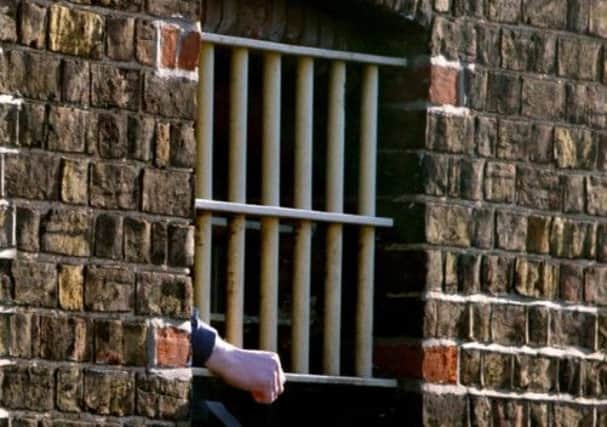£1.3m to help end ‘revolving door’ of Scottish jails


More than half of all short-term prisoners in Scotland commit new crimes within a year of release. This figure has barely fallen in recent years – at a cost of £3 billion to the country’s economy.
These statistics were branded “far too high” by MSPs at Holyrood yesterday, who called for greater Scottish Government action to address the issue.
Advertisement
Hide AdAdvertisement
Hide AdMs Cunningham said that two new community integration units – for men and women – were being created in an effort to help prisoners get back on their feet after release.
“Purpose, meaning and positive family relationships are particularly important in shaping new beginnings for people leaving prison,” she told MSPs.
Greenock Prison is to pilot a new £70,000 initiative, which it is hoped will boost “throughcare” services and Ms Cunningham said the new integration units will “build on this”.
More than 1,200 inmates jailed for fewer than three months – 58.4 per cent of the overall total – reoffended within a year of release, figures for 2009-10 showed. About a third of all prisoners released in this period – more than 14,000 – reoffended within a year.
MSPs voiced concerns that prisoners on short-term sentences were not in jail long enough to benefit and would “slip through the net”.
Conservative deputy leader Jackson Carlaw said “much, much more needs to be done” to tackle reoffending.
Mr Carlaw added: “Currently, throughcare is only available to offenders on longer sentences, meaning short-term prisoners who are often in and out of prison for the equivalent of a longer sentence slip through the net.”
The new pilot at Greenock Prison will offer support for all inmates regardless of their sentences.
Advertisement
Hide AdAdvertisement
Hide AdNationalist backbencher Colin Keir said reoffending by short-term prisoners was “one of the major problems in the justice system”.
“This almost revolving door of entry and exit into prison isn’t an easy nut to crack,” he said.
But programmes preparing inmates for life on the outside had no effect on short-term prisoners, he said.
“A prisoner really needs to be inside for quite a bit longer than six months or a year.”
Approximately £128m is spent by the Scottish Government on measures to tackle reoffending. Offenders find it difficult to return to communities and deal with basics such as applying for benefits or getting a job.
In his annual report last year, Scotland’s chief inspector of prisons, Hugh Monro, called for more offenders to be given meaningful work or education while they were serving their sentences, insisting this would cut reoffending rates.
The Scottish Government also faced calls to follow moves south of the Border and use the private sector in “mentoring” schemes for prisoners with firms “paid by results” if reoffending is cut.
“Scotland has some catching up to do,” Mr Carlaw added.